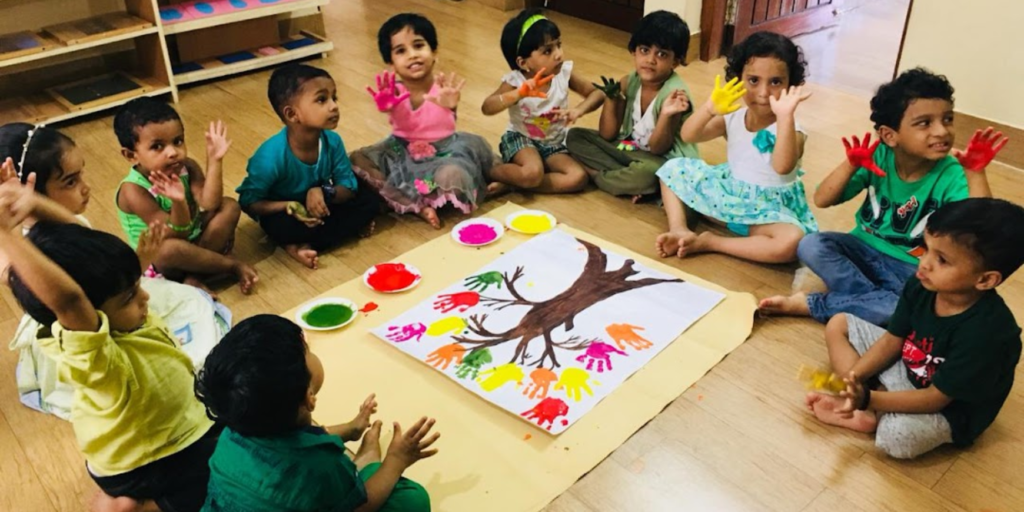Montessori schools place a strong emphasis on the development of basic life skills alongside academic learning. Here is how Montessori education promotes the presence of basic life skills:
Practical Life Activities: Practical life activities are a fundamental component of the Montessori curriculum. These activities are designed to develop essential life skills such as dressing oneself, preparing food, cleaning, and organizing. By engaging in these activities, children learn to be independent, responsible, and capable of taking care of themselves and their environment.
Self-Care Skills: Montessori schools encourage children to learn self-care skills, including dressing, grooming, and personal hygiene. Children are provided with appropriate materials and guidance to develop these skills at their own pace. This fosters a sense of independence, self-confidence, and responsibility in the children as they learn to take care of their own needs.
Emotional Regulation and Social Skills: Montessori education places great importance on developing social and emotional skills. Through daily interactions and group activities, children learn to communicate effectively, express their emotions, resolve conflicts, and develop empathy toward others. These skills are crucial for building positive relationships and navigating social situations throughout life.
Practical Problem-Solving Skills: Montessori classrooms are designed to provide children with hands-on learning experiences and opportunities for problem-solving. Children engage in activities that require them to think critically, make decisions, and find practical solutions to everyday challenges. These problem-solving skills are transferable to real-life situations and contribute to a child’s ability to handle various tasks and problems independently.
Time Management and Organizational Skills: Montessori education encourages children to develop time management and organizational skills. They learn to manage their time effectively, follow a daily routine, and prioritize tasks. Through the use of classroom materials and structures, children develop organizational skills by arranging and maintaining their workspaces and materials in an orderly manner.
Montessori education recognizes the importance of basic life skills in a child’s overall development. By fostering independence, self-reliance, and practical abilities, Montessori schools empower children to become confident and capable individuals who are well-prepared to navigate their daily lives and contribute positively to their communities.

